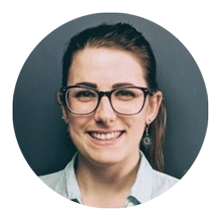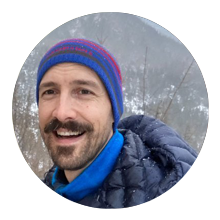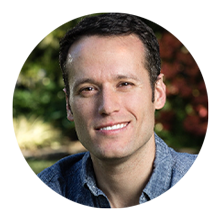LEARN
Preview our Innovation Spotlight workshop.
Preview our Innovation Spotlight workshop.
Book a meeting with one of our scientists on-site.

Stop by our booth and chat directly with PacBio staff who will be on hand to answer your questions.
Booth hours:
By offering the most complete and accurate picture of the human genome, PacBio technology is revolutionizing our understanding of the complex biology of cancer, improving solve rates in rare disease research, and has the potential to identify new biomarkers and therapeutic targets.
Join us at AMP to hear how highly accurate long- and short-read sequencing from PacBio on our Revio, Onso, and new Vega benchtop system are enabling researchers and clinicians to gain new insights into disease biology.
We'd love to hear what you're working on. Fill out the form below and we'll be in touch to schedule a meeting at the conference.
Our ability to confidently detect somatic variants in cancer via DNA and RNA sequencing has been limited by the sequencing technologies currently used in cancer genomics. Accurate and comprehensive sequencing is required to characterize all types of somatic mutations, which include not only small variants, but also structural variants, RNA isoforms, and fusions.
In this workshop, you will learn how accurate long reads enable researchers to explore the complete genome and transcriptome, while highly accurate short reads reduce false positives to lower the limit of detection for very rare variants in applications like early cancer detection research.

Jiannis Ragoussis, PhD
Professor of Human Genetics and Head of Genome Sciences, McGill University

Lisa Lansdon, PhD
Assistant Director, Molecular Genetics, Children’s Mercy Hospital

Alex Sockell, PhD
Segment Lead, Cancer Genomics, PacBio
Date/Time: Thursday, November 2 | 10:10 – 10:40 AM EDT
Location: Walter E. Washington Convention Center, Exhibit Hall, CoLab Theater #2

Alexander Hoischen, PhD
Assistant Professor, Radboud University Medical Centre
PacBio HiFi long-read sequencing has the potential to become a single front-line assay for interrogating rare disease cohorts because of its ability to accurately call and phase all classes of variants. An international group of clinical researchers and PacBio have been collaborating to study the efficacy of HiFi sequencing in interrogating the many possible genetic mechanisms that underlie rare diseases. This presentation will provide an overview of the group’s goals and activities and will share recent results, particularly around correctly resolving clinically relevant genes that lie in areas of high sequence homology or otherwise complex regions of the human genome.
Date/Time: Friday, November 3 | 10:10 – 10:40 AM EDT
Location: Walter E. Washington Convention Center, Exhibit Hall, CoLab Theater #2

David Porubsky, PhD
Post-Doctoral Fellow, University of Washington, Eichler Lab

Zev Kronenberg, PhD
Senior Manager, Computational Biology, PacBio
Accurate long-read sequencing characterizes the full spectrum of genetic variation across the genome, but variant calling software is still catching up to the sequencing technologies. We have generated deep Pacific Biosciences (PacBio) high-fidelity (HiFi), ultra-long Oxford Nanopore Technologies (ONT), Strand-seq, and Illumina whole-genome sequencing data to construct near-T2T, phased genome assemblies from primary material obtained from a 4-generation, 28-member CEPH pedigree (1463). We are constructing a more comprehensive and validated catalog of >8 million single-nucleotide variants, indels, short tandem repeats, and structural variants, including a detailed assessment of inversion polymorphisms that associate with disease risk. The use of multiple orthogonal technologies, near-T2T phased-genome assemblies, and a multi-generation family allow us to assess inheritance patterns and to create a “truth set” for all classes of human genetic variation upon which to test and benchmark new technologies.
| Poster | Title | Presenter |
| Poster #ST114 (abstract #1873619) | Improved detection of low frequency mutations in ovarian and endometrial cancers by utilizing a highly accurate sequencing platform | Jiannis Ragoussis, PhD; McGill University |
| Poster #G062 (abstract #1875435) | Improved liquid biopsy assay performance using sequencing by binding (SBB) | Alex Sockell, PhD; PacBio |
| Poster #G082 (abstract #1875257) | Targeted long-read sequencing of native DNA for comprehensive characterization of repeat expansions | Sarah Kingan, PhD; PacBio |

Stop by our booth and chat directly with PacBio staff who will be on hand to answer your questions.
Booth hours:
Interested in getting a sequencing project started? Stop by our service providers to talk about project design and next steps.